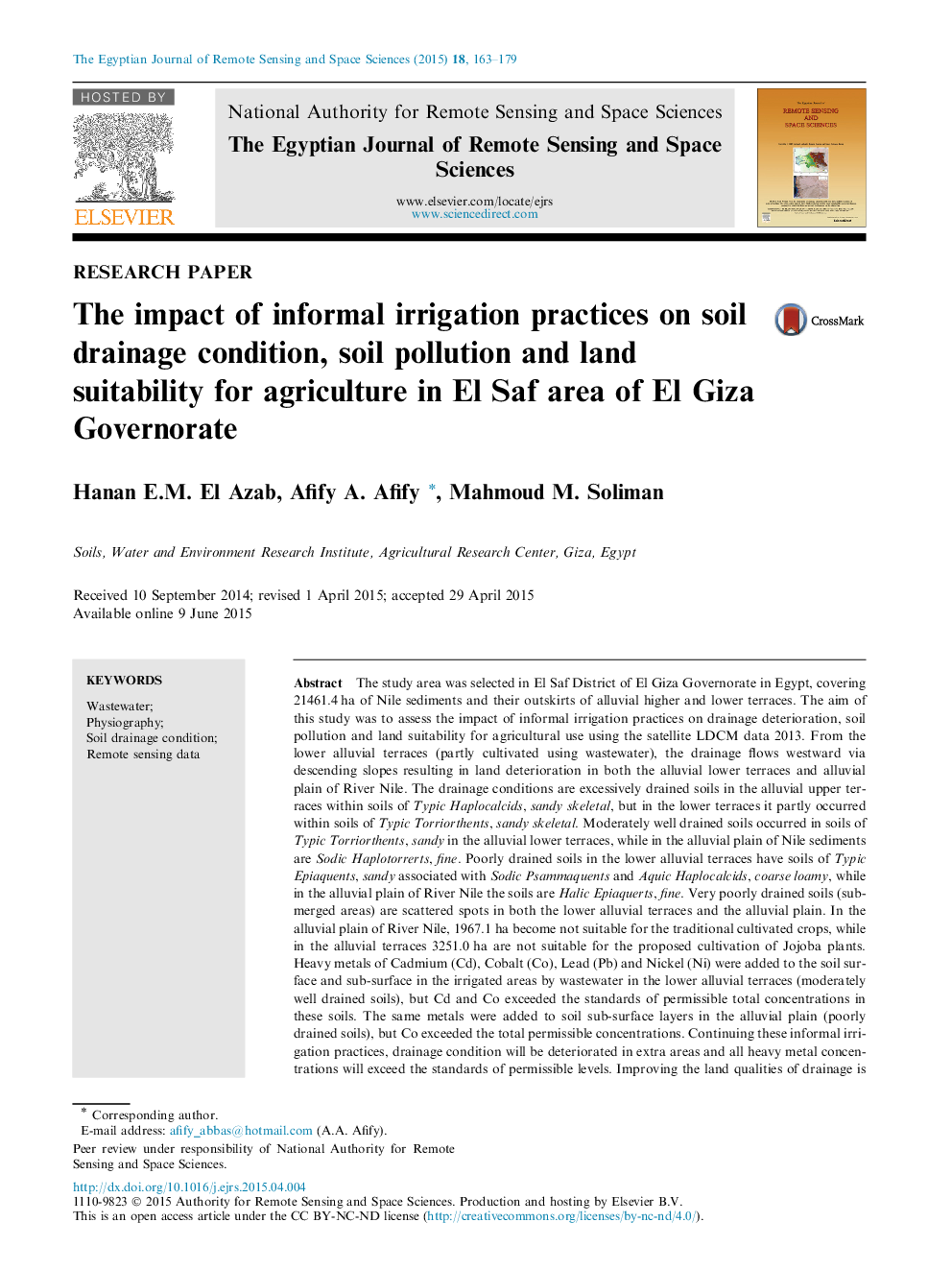| Article ID | Journal | Published Year | Pages | File Type |
|---|---|---|---|---|
| 4681311 | The Egyptian Journal of Remote Sensing and Space Science | 2015 | 17 Pages |
The study area was selected in El Saf District of El Giza Governorate in Egypt, covering 21461.4 ha of Nile sediments and their outskirts of alluvial higher and lower terraces. The aim of this study was to assess the impact of informal irrigation practices on drainage deterioration, soil pollution and land suitability for agricultural use using the satellite LDCM data 2013. From the lower alluvial terraces (partly cultivated using wastewater), the drainage flows westward via descending slopes resulting in land deterioration in both the alluvial lower terraces and alluvial plain of River Nile. The drainage conditions are excessively drained soils in the alluvial upper terraces within soils of Typic Haplocalcids, sandy skeletal, but in the lower terraces it partly occurred within soils of Typic Torriorthents, sandy skeletal. Moderately well drained soils occurred in soils of Typic Torriorthents, sandy in the alluvial lower terraces, while in the alluvial plain of Nile sediments are Sodic Haplotorrerts, fine. Poorly drained soils in the lower alluvial terraces have soils of Typic Epiaquents, sandy associated with Sodic Psammaquents and Aquic Haplocalcids, coarse loamy, while in the alluvial plain of River Nile the soils are Halic Epiaquerts, fine. Very poorly drained soils (submerged areas) are scattered spots in both the lower alluvial terraces and the alluvial plain. In the alluvial plain of River Nile, 1967.1 ha become not suitable for the traditional cultivated crops, while in the alluvial terraces 3251.0 ha are not suitable for the proposed cultivation of Jojoba plants. Heavy metals of Cadmium (Cd), Cobalt (Co), Lead (Pb) and Nickel (Ni) were added to the soil surface and sub-surface in the irrigated areas by wastewater in the lower alluvial terraces (moderately well drained soils), but Cd and Co exceeded the standards of permissible total concentrations in these soils. The same metals were added to soil sub-surface layers in the alluvial plain (poorly drained soils), but Co exceeded the total permissible concentrations. Continuing these informal irrigation practices, drainage condition will be deteriorated in extra areas and all heavy metal concentrations will exceed the standards of permissible levels. Improving the land qualities of drainage is required and Jojoba cultivation is proposed to replace the edible crop cultivation in the alluvial terraces to avoid the heavy metal contamination risk and to be used for developing a bio-fuel crop production of renewable energy.
